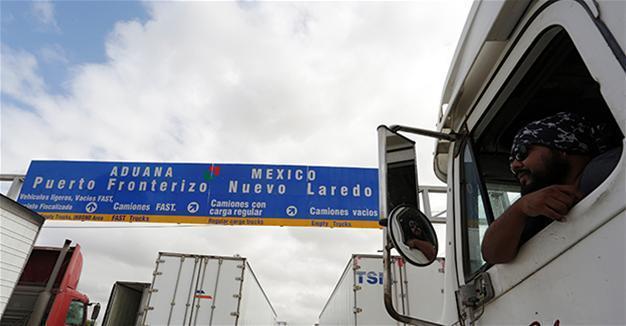Canada, Mexico ready to talk about NAFTA with US
OTTAWA - Agence France-Presse

REUTERS photo
Canada and Mexico agreed on Nov. 10 to U.S. President-elect Donald Trump’s demand to have a fresh look at their tripartite 22-year-old free trade pact, fearing they could be shut out of the US market.
But the two U.S. allies diverged on the level of changes to the North American Free Trade Agreement (NAFTA) each was willing to accept, with Mexico taking a harder line.
The 1994 trade pact became a source of friction with America’s neighbors during the campaign when Trump called NAFTA the worst trade deal the United States has ever signed.
The Republican president-elect’s protectionist notions to repatriate American jobs lost to free trade sent shockwaves through Canada and Mexico’s economies, which both rely heavily on exports to the United States.
“I think it’s important that we be open to talking about trade deals,” Canadian Prime Minister Justin Trudeau, a fierce defender of free trade, said on Nov. 10.
“If the Americans want to talk about NAFTA, I’m more than happy to talk about it,” he said.
Mexico’s Foreign Minister Claudia Ruiz Massieu, meanwhile, said her government was willing to seek to “modernize” NAFTA with Trump’s incoming administration and Canada, but not ready to start from scratch.
“We are willing to talk about this with the new government and with Canada as well,” Ruiz Massieu told CNN.
“We think it is an opportunity to think if we should modernize it, not renegotiate it, but to modernize it,” she insisted.
Ruiz Massieu said NAFTA would be discussed with Trump’s transition team in the coming months.
Trump has also agreed to meet with Mexican President Enrique Pena Nieto, possibly before the New York billionaire’s inauguration in January.
Trudeau has meanwhile pledged to work closely with the new US leader.
NAFTA created a continental market with 530 million consumers in Canada, the United States and Mexico.
Two-way trade in goods between Mexico and the United States totaled about US$1.5 billion daily in 2015, while bilateral trade crossing the US-Canadian border amounted to $1.8 billion daily.
US a net loser in pact
The United States, however, is a net loser in both cases, posting $15 billion and $58 billion trade deficits with Canada and Mexico, respectively, last year.
Ruiz Massieu said Mexico “believes in free trade” and the governments “have the challenge to make sure that the opportunities created by NAFTA are more inclusive and that more people in the three countries feel the benefit of this integration agreement.”
Trudeau said also that it was important to periodically reassess trade deals to ensure that they continue to be of benefit to the middle class.
Some analysts predict a drop in trade if Trump follows through with protectionist measures, and even possibly a recession in Canada, whose exports to the United States account for 20 percent of its GDP.
Others insist the United States would never seek to curb trade with Canada and Mexico since their economies are so heavily intertwined.
Whether or not NAFTA actually helped generate thousands of jobs and reduce income disparities across North America, or caused huge job losses in the United States as companies moved production to lower cost Mexico, as Trump has suggested, is up for debate.
In 2015, the U.S. Congressional Research Service summarized several studies this way: “In reality, NAFTA did not cause the huge job losses feared by the critics or the large economic gains predicted by supporters.”
“The net overall effect of NAFTA on the US economy,” it concluded, “appears to have been relatively modest, primarily because trade with Canada and Mexico accounts for a small percentage of U.S. GDP.”
The report acknowledged there were corporate and employee costs associated with the transition to more open trade.
It also noted that NAFTA has served as a template for all subsequent free trade agreements negotiated by the United States.
